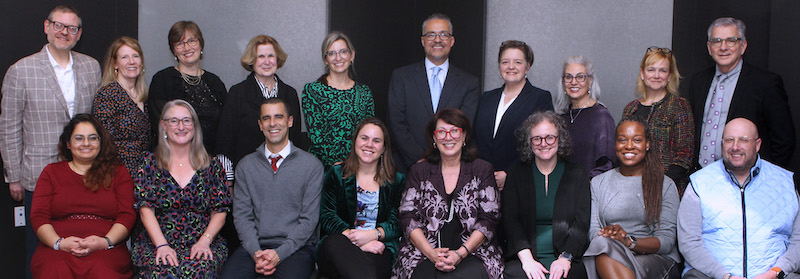Site Search
- resource provided by the Forum Network Knowledgebase.
Search Tip: Search with " " to find exact matches.
The United States Department of Labor, State of New Jersey, and City of Newark announced a $5 million grant to help provide jobs and support to hundreds of Newark residents returning home from prison over the next two years.
The grant includes $2 million in matching funds from the Bodman–Achelis Foundations, Joan Ganz Cooney, the Charles Edison Fund/Edison Innovation Foundation, the Council of New Jersey Grantmakers, the F.M. Kirby Foundation, the Manhattan Institute, the Nicholson Foundation, and the Victoria Foundation.
“The City can’t do this alone. It takes strategic alliances with federal and state officials, community and faith-based organizations, and the leveraging arm of the philanthropic institutions,” said Mayor Cory Booker. “We established the office of the philanthropic liaison, underwritten by the Council of New Jersey Grantmakers, to help create stronger connections with funders. The matching grants from the private sector show that these efforts are working.”
“The foundation community is delighted to partner with strong government leadership and the city’s philanthropic liaison in addressing the challenges faced by the growing numbers of men and women re-entering society,” said William H. Byrnes, Jr., program officer with the F.M. Kirby Foundation and trustee of the Council of New Jersey Grantmakers.
Over the past three years, the United States Department of Labor has been the lead agency for implementing the federal government’s Prisoner Reentry Initiative. “This grant will enable Newark to build on the success of the President’s Prisoner Reentry Initiative and provide over 1,200 ex-offenders with basic job skills and other assistance to help them succeed in developing new career paths,” said U.S. Secretary of Labor, Eliane L. Chao.
The combined $5 million award will enable the City to strengthen and expand services via a network of partners working through a one-stop center, Opportunity Reconnect, at Essex County College.
The goal of the grant is keep people working, help employers find workers, and keep families safe by successfully integrating ex-prisoners back into their communities through a comprehensive system of services including case management, mentoring, skills assessment, and referrals to health care providers.
State and local agencies will be coordinated to strengthen the city’s network and avoid duplication of efforts.
“We’ve managed to make funders more aware of the barriers that prevent ex-prisoners from being successful," said Jeremy Johnson, Newark’s philanthropic liaison. "Grantmakers have become increasingly involved as a result.”
As artificial intelligence (AI) and technological advances take on an increasingly prominent role in our society, BIPOC and immigrant communities face the threat of biases and outright hostilities being encoded and automated into surveillance, enforcement, and judicial tools. At the same time, creative leaders in the nonprofit sector are leveraging and building new technologies to better deliver culturally responsive services at scale to their communities. In this two-part series on the intersection of AI, technology and immigrant justice, GCIR invites funders to deepen their knowledge in the space as well as gain insights on how philanthropy can deploy investments that build the movement’s capacity to respond to emergent threats and opportunities.
Part 1: The Threat of AI and Technology to Immigrant Justice
As technological innovation accelerates, so too do its potential harms, particularly for immigrant communities. AI and tech tools are increasingly being weaponized in surveillance, enforcement, detention, and court system contexts. Troubling examples of this include DHS’s use of tools to automate decision making on credibility determinations, benefit eligibility, and whether or not individuals should be released from detention. AI and technology tools are also being used to spread mis- and disinformation, not only endangering immigrant communities, but also weakening our ability to function as a society with a shared set of information about the world. In this discussion, funders will learn from immigrant and civil liberties groups at the forefront of the movement to mitigate technologically-driven harms to historically targeted communities.
Speakers:
Tsion Gurmu, Legal Director, Black Alliance for Just Immigration
Rachel Levinson-Waldman, Managing Director, Liberty & National Security, Brennan Center for Justice
Paromita Shah, Co-Founder & Executive Director, Just Futures Law
Cinthya Rodriguez, National Organizer, Mijente
Registration is also open for for the second part of the series, "Tech for Good: Building Innovative Tools to Serve Immigrant Communities," taking place on Thursday, February 13th. Click here to register.

Retributing Power by Simplifying and Streamlining Processes
Sisters of St. Joseph Health & Wellness Foundation
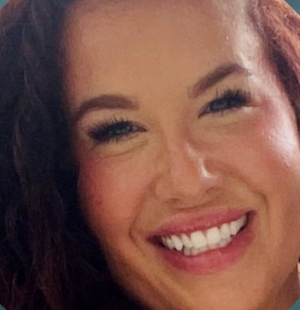 When Beth Collins joined the Sisters of St. Joseph Health and Wellness Foundation as the new Executive Director, she knew that the foundation could be doing more to support its nonprofit ecosystem. With a background in direct service, Beth remembered when she was on the other side of the funding relationship – sometimes spending hours writing lengthy application materials or digging up data to meet reporting requirements, all while juggling her never-ending to-do list. By aligning the values of Trust-Based Philanthropy to the virtues and mission of the Sisters of St. Joseph, she has catalyzed a shift toward redistributing power in its community partnerships.
When Beth Collins joined the Sisters of St. Joseph Health and Wellness Foundation as the new Executive Director, she knew that the foundation could be doing more to support its nonprofit ecosystem. With a background in direct service, Beth remembered when she was on the other side of the funding relationship – sometimes spending hours writing lengthy application materials or digging up data to meet reporting requirements, all while juggling her never-ending to-do list. By aligning the values of Trust-Based Philanthropy to the virtues and mission of the Sisters of St. Joseph, she has catalyzed a shift toward redistributing power in its community partnerships.
This power shift began when Beth started a conversation about values with the foundation board. By approaching the board with curiosity and bringing the voice of the community into the conversation, she set the tone for trust, openness, and an ongoing dialogue. The Foundation is now working toward fully embodying its values in its practices. The Sisters of St. Joseph have expanded their general operating support portfolio, shifted the bulk of the application process from applicants to the Foundation, replaced written reports with honest conversations, and created more opportunities for the public to provide feedback and engage in candid dialogue with the board. Focusing on only the essential information for applications and reporting has enabled staff to redirect their time and energy to develop wholehearted relationships with community partners. By starting with the why, Beth is leading the Foundation toward a clear vision for the how: “Trust Based Philanthropy is about humility – at Sisters of St. Joseph, we recognize that we are just one piece of the puzzle – and we are encouraging others to think outside of themselves.”
Offering Support Beyond the Check
Liberty Hill Foundation
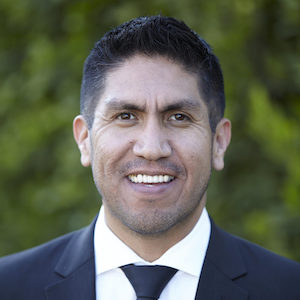 A community-funded foundation since day 1, Trust Based Philanthropy is at the core of the Liberty Hill Foundation. Centered on social justice campaigns, research, and policy initiatives designed to drive systemic change, Liberty Hill Foundation refers to itself as a "Laboratory for Social Change Philanthropy”. When Julio Marcial stepped into the role of Senior Vice President of Programs, he looked beyond the funding and considered the myriad of ways the foundation can support community partners beyond the check by connecting them to other funders and donors. As a member of several pooled funds in Los Angeles, Liberty Hill Foundation proactively seeks opportunities that will benefit their community partners. The Foundation has introduced many funders in their circle to Trust Based Philanthropy principles – this has sparked several conversations at other foundations serving Los Angeles county, several of which have since shifted their practices. Beyond private and public foundations, Marcial advocates for a push to Trust Based Philanthropy in California state funding agencies.
A community-funded foundation since day 1, Trust Based Philanthropy is at the core of the Liberty Hill Foundation. Centered on social justice campaigns, research, and policy initiatives designed to drive systemic change, Liberty Hill Foundation refers to itself as a "Laboratory for Social Change Philanthropy”. When Julio Marcial stepped into the role of Senior Vice President of Programs, he looked beyond the funding and considered the myriad of ways the foundation can support community partners beyond the check by connecting them to other funders and donors. As a member of several pooled funds in Los Angeles, Liberty Hill Foundation proactively seeks opportunities that will benefit their community partners. The Foundation has introduced many funders in their circle to Trust Based Philanthropy principles – this has sparked several conversations at other foundations serving Los Angeles county, several of which have since shifted their practices. Beyond private and public foundations, Marcial advocates for a push to Trust Based Philanthropy in California state funding agencies.
The Liberty Hill Foundation embraces itself as a fundraiser for its nonprofit partners and its responsibility for the Los Angeles community. The Foundation raises the funds and opens doors for nonprofits and then “steps out of the way,” says Julio. According to Julio, partnerships are the key to maximizing trust and impact in the community: “We can't do this without our partners, peers, and donors. We need to call each other out – and to call each other in.”
Leading with Trust, Transparency, and Responsiveness
Headwaters Foundation
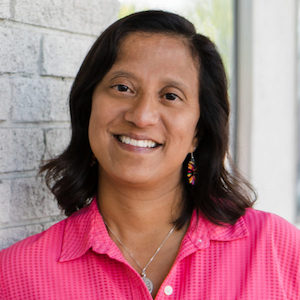 Headwaters Foundation is a health-conversion foundation working side by side with the community to achieve better outcomes towards a healthy and thriving Western Montana. Brenda Solorzano, CEO of Headwaters, has been at the helm of the foundation since its inception in 2017. With over 20 years of experience in traditional philanthropy, Brenda began asking big questions about standard philanthropic practices. Brenda is especially focused on tapping into the collective knowledge and experience of the community to create impactful systems. Early on in her tenure as CEO, Brenda shared her vision for Trust Based Philanthropy with the foundation’s board and they have supported her as she’s stewarded the foundation through its strategic planning process.
Headwaters Foundation is a health-conversion foundation working side by side with the community to achieve better outcomes towards a healthy and thriving Western Montana. Brenda Solorzano, CEO of Headwaters, has been at the helm of the foundation since its inception in 2017. With over 20 years of experience in traditional philanthropy, Brenda began asking big questions about standard philanthropic practices. Brenda is especially focused on tapping into the collective knowledge and experience of the community to create impactful systems. Early on in her tenure as CEO, Brenda shared her vision for Trust Based Philanthropy with the foundation’s board and they have supported her as she’s stewarded the foundation through its strategic planning process.
Community input and feedback was important to Brenda. With the board’s support, she took this a step further by engaging the community as co-creators and decision-makers. To accomplish this, Brenda invited 600 nonprofit representatives across the state to the table to share their thoughts. Brenda asked each person 2 questions: “If you were in my seat, what do you think the foundation should prioritize?” and “What’s the biggest challenge in your work?” By creating a space for open dialogue, Brenda took the pulse of the real challenges in Western Montana communities.
Soon after her introduction to Western Montana’s nonprofit sector, Brenda called on the community again to help design the foundation’s strategic focus. She hosted a series of public community meetings in each of Montana’s 15 counties. Headwaters facilitated a design-thinking process for members to discuss their challenges and co-create solutions. Two key strategies emerged: upstream systems and social change determinants prioritizing children and Indigenous populations.
Brenda engaged the community as decision-makers as Headwaters explored partner organizations for the foundation’s child thriving portfolio. The community nominated and voted on non-profit partners in a live meeting. This was a new approach and even some staff were nervous about the outcome. Headwaters proudly reports that a few years later, many of the organizations selected have grown to become blossoming collaborations. Grounded in Trust-Based principles since its inception, Headwaters is an exemplar of what it means to Do Good Better. Brenda says, “Trust Based Philanthropy is about starting from a place of trust.”
Co-Creating Goals by Soliciting and Acting on Feedback
T. Rowe Price Foundation
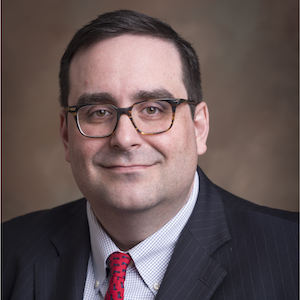 When John Brothers joined T. Rowe Price Foundation as President in 2015, the Foundation’s home in Baltimore was in the midst of social unrest following the tragic murder of Freddie Gray, a 25-year old Black man arrested over his legal possession of a knife and sustained injuries while being transported by the Baltimore Police. The T. Rowe Price Foundation recognized that it was a critical time to pause and listen to the Baltimore community. Within months of joining the Foundation, John Brothers and the Foundation team began an ongoing dialogue within Baltimore – in homes, places of worship, and community spaces. By leaning into the expertise and experience of community partners, John developed the T. Rowe Price’s Theory of Philanthropy, which mirrors principles to those similar to Trust-Based Philanthropy.
When John Brothers joined T. Rowe Price Foundation as President in 2015, the Foundation’s home in Baltimore was in the midst of social unrest following the tragic murder of Freddie Gray, a 25-year old Black man arrested over his legal possession of a knife and sustained injuries while being transported by the Baltimore Police. The T. Rowe Price Foundation recognized that it was a critical time to pause and listen to the Baltimore community. Within months of joining the Foundation, John Brothers and the Foundation team began an ongoing dialogue within Baltimore – in homes, places of worship, and community spaces. By leaning into the expertise and experience of community partners, John developed the T. Rowe Price’s Theory of Philanthropy, which mirrors principles to those similar to Trust-Based Philanthropy.
T. Rowe Price’s Theory of Philanthropy centers long-term impact by strategic investments in areas identified in partnership by those who live and work within the Baltimore community. The Foundation and community partners co-define a vision for success and community partners are trusted with the agency to make decisions in pursuit of shared goals. T. Rowe Price’s Theory of Philanthropy is considered a distinct model among other large corporate foundations. When asked how John managed to gain board consensus on this novel approach, he characterized the Theory of Philanthropy with a business metaphor: “People don’t buy stocks for an iPhone – they invest in Apple.” The Foundation focuses on supporting nonprofit organizations in a holistic way. By listening to the community early on, John shifted the Foundation’s approach from funding a variety of important, yet disconnected, programs to a co-creating strategic investment of capital and other support on more focused efforts that will have a lasting impact. To learn more please visit troweprice.com/foundation.
Doing Good Better, a partnership of the Council of New Jersey Grantmakers and the New Jersey Center for Nonprofits, is a community of funders and nonprofits taking action against the power imbalances and racial inequities in philanthropy, nonprofits, and government.
On April 24, 2008 a $19 million landmark award was announced that will strengthen Newark public charter schools. The award comprises grants from seven funders including four national family foundations -- the Bill & Melinda Gates Foundation, Doris & Donald Fisher Fund, Robertson Foundation, and The Walton Foundation -- and three New Jersey funders -- the MCJ and Amelior Foundations, Prudential Foundation, and Victoria Foundation.
The national funders have pledged $4 million each and the New Jersey foundations have earmarked $1 million each toward the initiative. “We welcome these generous national foundations to Newark, and we are grateful for the new investment from three of the city’s longstanding philanthropic partners,” Mayor Cory Booker said.
The $19 million is part of a larger $25 million campaign to help expand and strengthen the capacity of Newark’s charter schools. For further information, visit the website of the newly established Newark Charter School Fund.
Grantmakers Convene Around Prisoner Reentry
A group of 30 grantmakers and Newark officials gathered on April 28 at the offices of the Charles Edison Fund to get a close-up look at the City’s strategies to address the growing issue of prisoner reentry, one of Mayor Booker’s key priorities. Newark faces an influx of 1,500-2,000 men and women every year returning from incarceration. At the same time, 15,000–20,000 individuals are currently on probation or parole in Essex County, the majority in Newark.
Funders seeking to positively impact the city and its residents have a vested interest in helping to improve prospects for the rising number of incarcerated persons returning home. The challenges are complex and intertwined with issues of public safety, job creation and job-readiness, family reunification and fatherhood, access to housing and addiction services, and vigilant case management.
Cornell Brooks, executive director of the New Jersey Institute of Social Justice, gave an overview of the barriers which prevent ex-prisoners from successfully reentering society. Among the most burdensome hurdles are prohibitions on conditional driver’s licenses and inflexible fine payment plans. Such measures effectively close the doors to viable employment options upon release. Another barrier is the effect of exorbitant surcharges on collect telephone calls from prison. The high charges contribute to the erosion of family ties during incarceration, thereby reducing successful family reunification post-release.
Richard Greenwald, an executive on loan to the City from the Manhattan Institute, cited the importance of creating transitional jobs immediately upon release as a proven means of reducing recidivism. Wanda Moore, Director of the Prisoner Reentry, explained the need to mobilize and organize multiple nonprofit and government partners to better serve ex-prisoners. She described “Opportunity Reconnect,” a one-stop center operated by the City, which is helping link ex-prisoners to case managers, job services, and myriad agencies. Performance measures and data-communications systems are in the development stage to help the City assess and evaluate its effectiveness at helping individuals successfully return to the community and their families.
Igniting Equitable Systems Change Together
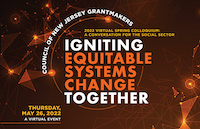
Date: Thursday, May 26
Time: 1:00 to 5:00 p.m.
On May 26, the Council brought together recognized thought leaders from philanthropy and nonprofits for a conversation exploring how the social sector can advance systems change.
Grantmakers and nonprofits grapple with complex, structural issues every day, and take on the difficult questions to move our collective work forward.
During a dynamic discussion, panelists shared strategies to empower proximate leaders, remove structural barriers and build the capacity of grassroots organizations, and shift mental models to challenge assumptions and strengthen nonprofit-funder relationships. After the panel, case study presenters highlighted three local examples of systems change, emphasizing the importance of cross-sector collaboration, collective action, and community engagement. Then, attendees gathered together for small group discussions to unpack key takeaways and discuss their own successes and challenges with systems change.
One of the most highly regarded convenings for social sector leaders in the state, the 2022 Virtual Spring Colloquium considered the power and cultural shifts needed to advance systems change through philanthropic and nonprofit partnership.
Attendees can revisit Whova to access event features such as session recordings, exhibitor virtual booths and sponsor pages, NJ Poetry Out Loud performances, and more.
| Agenda | |
| 1:00 - 1:30 pm: | Opening Session Featuring Sponsors & Exhibitors |
| 1:30 - 2:00 pm: | Break & Independently Visit with Sponsors & Exhibitor Virtual Booths |
| 2:00 - 3:30 pm: | Panel Discussion & Case Study Presentations - Igniting Equitable Systems Change Together |
| 3:30 - 4:00 pm: | Small Group Discussions |
| 4:00 - 4:15 pm: | Break & Independently Visit with Sponsors & Exhibitor Virtual Booths |
| 4:15 - 5:00 pm: | Networking Reception Featuring NJ Trivia |
The Healthcare Foundation of New Jersey is pleased to announce that it has awarded $3,515,084 in grants to eleven New Jersey nonprofit organizations in its fourth quarter of giving in 2024. The grants include two major gifts to area hospitals, including a $1,250,000 multi-year grant to Trinitas Regional Medical Center and a $1,000,000 multi-year grant to Overlook Medical Center.
The largest award of the quarter is a $1,250,000 commitment (to be paid over three years as a $750,000 grant and up to $500,000 in matching funds) to Trinitas Regional Medical Center to modernize its Cardiac Catheterization Lab. The renovation will include the purchase of two Philips Flex-Arm devices, which provide surgeons with greater clarity of vision while offering patients a reduced amount of radioactivity. Trinitas anticipates that the new equipment will remain in service for more than a decade and will lead to a 30% increase in cardiac catheterization patient volume.
The other large hospital gift announced this quarter is a three-year, $1,000,000 grant to Overlook Medical Center to create new mental health services for children and teens. This grant will fund the creation of an HFNJ Child and Adolescent Behavioral Health Center, which will be part of a larger effort at Atlantic Health that will bring together intensive outpatient services, partial hospitalization services, and more. The Center will provide children with stabilizing mental health care for those who are in a mental health crisis, and referrals to appropriate levels of care.
The award to Overlook is one of two multi-year grants awarded this cycle. KinderSmile will receive $450,000 over three years to fund its oral health program. KinderSmile brings much-needed oral health services directly to Newark schools, including education, nutritional counseling, dental exams, cleanings, and treatments. Over the course of the three-year project, KinderSmile will pilot the application silver diamine fluoride (SDF) in the school setting to arrest the progression of decay and as a preventative for healthy teeth, and will monitor patients’ progress throughout the three year period.<
Other grants awarded this quarter address a wide spectrum of community needs. A $175,000 grant to Jewish Vocational Services will fund an employment training program for the health professions, helping individuals advance their careers while also filling gaps in the healthcare workforce. Imagine a Center for Coping With Loss will receive $100,000 to support a third year of a program aiming to change the culture of grief in Newark – moving from their work building up grief support services in Newark schools to partnerships with the Boys and Girls Club of Newark and After School All Stars to bring more support to the community. Integrity House will receive $85,000 to support the second year of its Creative Arts Initiative, which engages clients with substance use disorders in artistic practices such as drawing, writing, and storytelling to aide in their recovery journeys.
The CNJG board is comprised of 20 leaders who come from CNJG member organizations and are elected by the CNJG membership. Each board member provides guidance and leadership to CNJG by serving up to two 3-year terms.
Photo taken after CNJG Annual Meeting on December 11, 2024.
Back Row: Andy Fraizer, Christine Healey, Lucy Vandenberg, Patricia Hartpence, Aaron Turner, Craig Drinkard, Catherine Wilson, Margarethe Laurenzi, Tammy Rice Herman, and Paul DiLorenzo
Front Row: Priti Mehta, Melissa Litwin, Justin Kiczek, Kate Barrett, Theresa Jacks (CNJG), Marcy Felsenfeld, Jasmyne Beckford, and Jeremy Grunin
Not Pictured: Kortney Swanson Davis, Maisha Simmons, and Maria Spina.
CNJG Board Members
Craig Drinkard, Chair, Victoria Foundation
Justin Kiczek, 1st Vice Chair, F. M. Kirby Foundation
Christine Healey, 2nd Vice Chair, The Healey Education Foundation, Inc.
Catherine Wilson, Treasurer, United Way of Greater Newark
Kortney Swanson Davis, Secretary, Forman S. Acton Educational Foundation
Kate Barrett, The Campbell’s Foundation
Jasmyne Beckford, The Prudential Foundation
Paul DiLorenzo, Salem Health and Wellness Foundation
Marcy Felsenfeld, The Healthcare Foundation of New Jersey
Andy Fraizer, Community Foundation of South Jersey
Jeremy Grunin, Grunin Foundation
Patricia Hartpence, NJM Insurance Group
Tammy Rice Herman, New Jersey State Council on the Arts
Margarethe Laurenzi, Maher Charitable Foundation
Melissa Litwin, The Henry and Marilyn Taub Foundation
Priti Mehta, Investors Foundation
Maisha Simmons, Robert Wood Johnson Foundation
Maria Spina, PSEG Foundation
Aaron Turner, Community Foundation of New Jersey
Lucy Vandenberg, Schumann Fund for New Jersey
Theresa Jacks, President & CEO, Council of New Jersey Grantmakers – ex officio
The Board of Trustees are supported by the work of 8 different committees.
This weekly conference call series welcomed New Jersey-based grantmakers along with national funders and provided an opportunity for grantmakers to hear from a wide range of experts in the field of disaster philanthropy. This series started on November 5, 2012, one week after Sandy struck New Jersey, and continued through March 25, 2013. The audio files of each recording are listed below.
Update from The President's Hurricane Sandy Rebuilding Task Force (3/25/13)
Environmental Justice Issues (3/18/13)
Update from the Governor's Office of Recovery and Rebuilding & Universal Design (3/11/13)
Governor & Mrs. Christie's Hurricane Sandy NJ Relief Fund & Report on Ocean/Monmouth Tour (3/4/13)
Christopher Kaufman Ilstrup, Vermont Community Foundation (2/25/13)
NJ Recovery Fund and Post Sandy Environmental Issues and Challenges (2/11/13)
Housing Issues Related to Natural Disasters and Post Hurricane Sandy (2/4/13)
FEMA's Long Term Recovery and Capacity Building Team (1/28/13)
Reports from NJ's Long Term Recovery Groups and Environmental Leaders Meeting (1/14/13)
Stewart Sarkozy-Banoczy, Director of the Office of International & Philanthropic Innovation (1/7/13)
Dr. April Naturale - Mental Health Issues Resulting from Disasters (12/17/12)
Peter Kasabach, Executive Director of New Jersey Future (12/10/12)
Byron Mason of the Federal Department of Health and Human Services (12/3/12)
John Grady Davies, President of Baton Rouge Area Foundation (11/26/12)
Cathy McCann, President of NJ Voluntary Organizations Active in Disasters (11/19/12)
Jera Stribling, Executive Director of Bruno Foundation and FEMA (11/12/12)
FEMA - Long Term Recovery Office (11/5/12)
CNJG is helping track philanthropy’s response to the coronavirus pandemic by continuing our “Get on the Map” Campaign partnership with Candid who has launched a new coronavirus map in response to funders requests.
It is critical to be transparent and share this information with other funders to help inform your philanthropy in the coming weeks and months. The information gathered will be publicly available and updated daily at candid.org/coronavirus. Knowing where money is going and how, and having the latest information from organizations, facilitates thoughtful collaboration and decision-making in times of crisis.
You can see a list of grants meant to benefit New Jersey, or
A link to highlight grantmaking by funders in New Jersey.
You can also use different filters to, for example, see grantmaking by funders in Bergen County.
They are also working on making their response funds page filterable by geographic area served. A list of the current New Jersey response funds is available here.
As you can see from any of these “live” maps, the information they have collected is not complete, and this is where we need YOUR help!
Please visit our Share Your Giving Data webpage for information about how to share your data.
If you have any questions on how to submit your data, about the map, or how to include your response fund, please contact Craig Weinrich, CNJG’s Director of Member Services. Thank you in advance for your assistance in getting a more complete picture of New Jersey’s philanthropic response to COVID-19.
CNJG provides this information free to the philanthropic community. If you are not a CNJG member, please join so you can take full advantage of the many benefits of membership and help underwrite the cost of services like this.
This presentation will focus on the potential impact of federal healthcare policy changes on coverage and access to care in New Jersey. We will discuss changes under consideration by the current Presidential administration and the 119th Congress, including adjustments to program financing, eligibility, and other policy requirements, with potential broad implications for state Medicaid and Marketplace programs. Heather Howard, will provide an overview of the potential federal policy changes, vehicles for advancing and anticipated timing of such changes, and implications for New Jersey funders and nonprofits.
Heather Howard is a Professor of the Practice at Princeton University’s School of Public and International Affairs, where she co-directs the Global Health Program and is a faculty affiliate of the Center for Health & Wellbeing. She is also director of the State Health and Value Strategies program, a Robert Wood Johnson Foundation-funded program focused on assisting states with transforming their health care systems to be affordable, equitable and innovative. She served as New Jersey’s Commissioner of Health and Senior Services from 2008-2010. She also has significant federal experience, having worked as Senator Jon Corzine's Chief of Staff, as Associate Director of the White House Domestic Policy Council and Senior Policy Advisor for First Lady Hillary Clinton, as an Honors Attorney in the U.S. Department of Justice's Antitrust Division Health Care Task Force, and for the U.S. Representative Nita Lowey (D-NY). She received her B.A. from Duke University and her J.D. from NYU School of Law.
Cost: Free for CNJG Members; $75 for Non Member Grantmakers
This program is only open to staff and trustees from grantmaking organizations.
Programs in this Series:
March 13: Making Sense of Federal Policy: Understanding What it Means for NJ: Immigration
March 20: Making Sense of Federal Policy: Understanding What it Means for NJ: Health
March 27: Making Sense of Federal Policy: Understanding What it Means for NJ: Environment
April 3: Making Sense of Federal Policy: Understanding What it Means for NJ: Education
April 10: Making Sense of Federal Policy: Understanding What it Means for NJ: Housing
April 17: Making Sense of Federal Policy: Understanding What it Means for NJ: Media & Journalism
April 24: Making Sense of Federal Policy: Understanding What it Means for NJ: Arts
Webinar Video
Op-Ed: The Affordable Care Act at 15 years old — successful, but facing challenges - Heather Howard, Rachel Morrow - March 24, 2025
As we move beyond the election season and look to 2025, New Jersey’s philanthropic and nonprofit sectors will continue to engage in conversations and partnerships that inspire change and support an inclusive future for all. Ensuring that we are fully prepared for the work ahead demands curiosity, an openness to ongoing learning, a commitment to listening, and building relationships with a range of partners. These are key characteristics and traits of a true leader.
To help you navigate what’s next in a new administration and new Congress, several national partners are offering post-election analysis:
- The National Council of Nonprofits is hosting Impact of the Elections on Nonprofitson Tuesday, November 12 at 4 pm.
- The Council on Foundations is hosting Looking to 2025: Making Sense of the Elections on Thursday, November 14 at 2 pm.
- United Philanthropy Forum is hosting Decision '24 Post-Election Briefing: Debrief + Sector Outlook on Wednesday, November 20 at 12:00 pm.
Leaders are committed to exploring new ideas, building connections, and finding common ground, and ways to come together. The New Jersey Center for Nonprofits’ annual conference, The Road Ahead on Wednesday, December 4 will bring together social sector leaders from across the state for just these purposes. I encourage you to register as soon as possible if you plan on attending. Space is filling up quickly.
Leaders come from all walks of life, and we’re especially fortunate in the philanthropic sector to have an abundance of talented, thoughtful, and caring leaders. After connecting with social sector leaders, and building on your leadership acumen at the Center’s conference, we’re looking forward to seeing you at the CNJG Annual Meeting & Holiday Gathering on December 11. Our theme, Inspiring Change through Leadership: Maximizing Philanthropic Impact, could not be more timely.
As a leader, you know that in these complex times, philanthropic investment and commitment matter more than ever. Each of us, and our individual organizations, bring unique and deeply informed expertise, perspectives, influence, and skills that enrich our collective effort. Together, New Jersey’s philanthropic community will continue to build a space where all voices are heard, and collaboration is valued, so we can move forward to address critical issues in meaningful ways.
Underwriting or sponsoring convenings is another strategy to engage in leadership activities. I hope you will consider supporting the annual meeting of the CNJG membership with a sponsorship or special donation. This event is the one time per year when a significant number of Council members come together in one space, often sowing the very first seeds of collaboration. Learn more about sponsorship opportunities.
A big thank you to our sponsors to date - we couldn't do this without you! Special thanks to Signature Sponsor – Prudential; Contributing Sponsors – Devils Youth Foundation, Robert Wood Johnson Foundation, and Victoria Foundation; Supporting Sponsor – Grunin Foundation, Pincus Family Foundation, and WSFS Bank; and Colleague Sponsor – Horizon Blue Cross Blue Shield of New Jersey.
Wishing us all a safe, restful, and restorative Thanksgiving later this month when the campaign of 2024 becomes a distant memory, but our resolve to champion the causes that matter most to our communities remains steadfast. That’s what leaders do.
Warmly,
Theresa Jacks, President and CEO
Council of New Jersey Grantmakers

